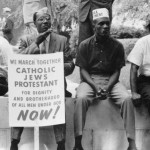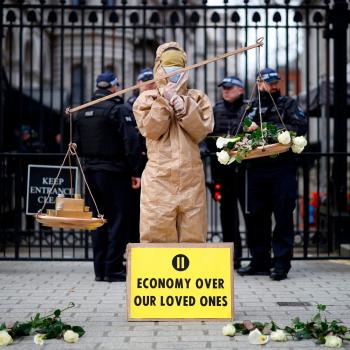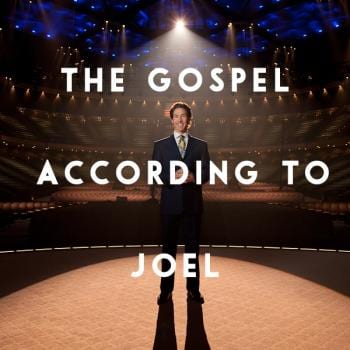Written by Mark Oestreicher
I AM NOT AN EMPLOYMENT LAW EXPERT OR AUTHORITY. And this post should NOT be taken as ‘legal advice.’
BUT: the other day over lunch, a graduate of our Youth Ministry Coaching Program, who leads a wonderful nonprofit ministry not too dissimilar from the Cartel, but local and Catholic, asked me a question just as we were wrapping up:
So, how do you think the new California minimum wage is going to impact youth ministry?
My first response: huh (it was a deeply thoughtful response)?
She unpacked her question, and it drove me to an afternoon of searching the Internet, ruminating on the implications of what I was finding.
We all know that many, many youth workers are underpaid. Old story. But I think — from what I can understand — that many churches are going to operating illegally in how they pay their youth workers, at least in California and other states that are raising their minimum wage. In fact, I suspect that a ton of California churches are already operating illegally, and the issue is about to get worse.
The issue surrounds the classification of exempt and non-exempt employees. I had to deal with compliance on this all the time when I was leading YS, so it was all coming back to me as I read today.
The simplest, lay terminology for understanding an exempt employee is a salaried employee (that’s not technically accurate, but easiest to understand). In other words, federal employment law (for which nonprofits like churches are NOT exempt) says that any employee must be paid at least time-and-a-half for any time more than 40 hours a week. That sort of employee then is ‘non-exempt.’ an exempt employee is one who is exempt from that rule.
Sure, a few youth workers are probably hourly employees. But the vast majority is salaried (and their churches treat them as exempt employees, whether they do so intentionally or not).
What the federal law says:
3 tests for exempt status (employees must meet ALL THREE):
The duties test
This one takes LOTS of words to unpack it on every description I could find. But the bottom line for our purposes here is that youth workers can easily fall under the heading of “professional exemption.” in other words: most youth ministry employment easily passes this test.
The salary basis test
This one is simple. For an employee to be exempt, she must be paid a base weekly amount (however often pay is actually distributed) that doesn’t change based on how many hours she worked that week. In other words: most youth ministry employment easily passes this test.
The salary level test
Here’s been things get problematic!
Federal employment law says an exempt employee must make at least $23,600/year. Most full-time youth workers make at least that. But it seems (as far as I can tell) that state laws trump this when they exist. In California, for example, an exempt employee must earn more than twice the minimum wage.
Current minimum wage in Cali is $10/hour, or $20,800 for 40 hours/week. That means an exempt employee must currently make a minimum of $41,600.
Think about the implications of this:
- If you are a full time California youth worker making less than $41,600 (assuming you’re salaried), your church is breaking the law.
- And if you’re a full-time youth worker anywhere in the US, and you’re being paid hourly, your church is legally obligated to pay overtime for anything past 40 hours in any week (think: camp, missions trip!).
But here’s where things are going to get tricky and more complicated (I’m using my state of California as the example, but this is playing out in many states):
California minimum wage is now set to move to $15/hour by 2022 or 2023 (depending on the organization’s size — if you’re not sure what your state’s minimum wage is, click here). That means the minimum wage (with no overtime) will be $31,200/year for a full-time employee (working 40 hours/week). AND THAT MEANS that an employee will need to make a minimum salary of $62,400 to be considered an exempt employee. And if the employee is non-exempt, they are required (by law) to be paid time-and-a-half for every hour over 40/week.
Got that? In California, by the year 2023 (that’s less than 7 years from now!), churches employing full-time youth workers will have two options:
- Pay them a minimum salary of $62,400 (and consider them exempt)
- or pay them something less than that and make them a non-exempt employee, but pay overtime any time the youth worker works a minute over 40 hours/week.
OH, and before you ask: churches (or any other nonprofit) are NOT allowed to have employee’s volunteer hours (a common misconception and violation of the law).
On one hand, this is great news for youth workers, right? Really, I’d love to see my entire youth ministry friends receive salaries that allow them to stay in their jobs as they move out of their young adult years.
On the other hand, I’m concerned that this will result in plenty of churches that simply can no longer afford a full-time youth worker. In other words: I expect a bunch of California youth workers to lose their jobs on January 1, 2023.
Of course: tons of churches will ignore the law and be non-compliant. That’s thin ice to be on, both morally and legally (Think: massive fines and 100% exposure to lawsuits).
Your state might be different than Cali (heck: south Carolina has NO minimum wage! so only the federal laws apply). So do some looking. But I hope churches will be both proactive and legally compliant!
Thoughts?
Written by and posted with permission by Mark Oestreicher who is a partner in The Youth Cartel, providing services and resources for individual youth workers and organizations

















